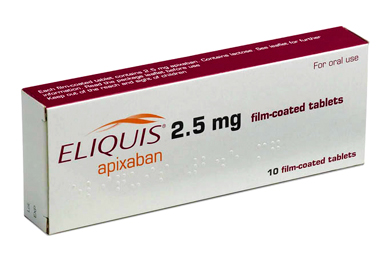
Bristol-Myers Squibb and Pfizer have presented data comparing the safety and efficacy of non-vitamin K antagonist oral anticoagulants (NOAC), such as Eliquis (ingredient: apixaban), in patients over 80 years of age who have atrial fibrillation.
The two companies released the real-world data on subgroup analysis of ARISTOPHANES, an ongoing real-world data analysis initiative that now includes anonymized patient records from more than 300,000 patients, at the American Heart Association (AHA) Scientific Sessions 2018.
The companies based the analysis on the data from Medicare data from the Center for Medicare and Medicaid Services (CMS) and three private insurance claim databases from Jan. 1, 2013 to Sep. 30, 2015. The study included atrial fibrillation patient group at least 80 years of age treated with one of the three NOAC medications -- rivaroxaban, apixaban, and dabigatran.
When compared to compared to rivaroxaban, apixaban significantly lowered rates of both stroke/systemic embolism (S/SE) (0.73 to 0.94) and major bleeding (0.50 to 0.58).
The drug also significantly lowered the rates of both S/SE (0.56 to 0.84) and major bleeding (0.68 to 0.88,) when compared to dabigatran.
The analysis included predefined assessment variables and a propensity-matching technique, a statistical method designed to balance the characteristics of each treatment group.
As with most real-world data analysis, however, there were limits to applying the results to the patient as a whole, while clinical trial data and real-world data studies must come together for better treatment decision-making, the companies said.
“Clinicians often lack information on clinical trials to consult when deciding on the choice of treatment,” said Steven Deitelzweig, one of the analysis’ primary investigators. ”This real-world data provides additional information to help make treatment decisions for some subgroups of patients, such as patients with atrial fibrillation at least 80 years of age.”

